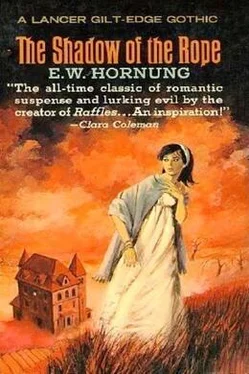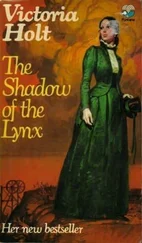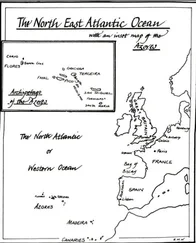He had spoken rapidly; the pause that followed lasted longer than this lengthy speech. And through it all they sat with eyes still locked, until he spoke again.
"You believe, at least, in the bona fides of my offer?"
And Rachel, still looking in his eyes, murmured that she did.
"You will bear in mind how essentially it differs from the ordinary offer of the kind; also, that I have never for a moment pretended to be in love with you?"
"I will."
Steel had risen as if to go; the keen scrutiny was withdrawn, a distinct spell as distinctly broken; and yet he lingered, with a smile.
"That," said he, "was a poor compliment to pay twice over! But it is human to err, and in my anxiety not to do so on the side of sentiment I own myself in danger of flying to the other extreme. Well, you know which is the common extreme in such cases; and at all events we shall avoid the usual pitfall. I am going to give you a few minutes to think it over; then, if you care to go into it further, I shall be most happy; if not, the matter is at an end."
A few minutes! Rachel felt very angry, without knowing that she was most angry with herself for not feeling angrier still. She had heard quite enough; it were weakness to listen to another word; and yet—and yet—
"Don't go," said Rachel, with some petulance; "that is quite unnecessary. Anything more extraordinary—but I owe you too much already to be your critic. Still, I do think I am entitled to go a little further into the matter, as you said, without committing myself."
"To be sure you are."
But this time he remained standing; and for once he kept those mesmeric eyes to himself. Obviously, Rachel was to have a chance.
"You spoke of your own country," she began. "Do you live abroad?"
There was the least suspicion of eagerness in the question. Rachel herself was unaware of it; not so Mr. Steel, and he sighed.
"A mere figure," he said; "what I meant was my own country–side."
"And where is that?"
"In the north," he replied vaguely. "Did you look twice at my card? Well, here is another, if you will do me that honor now. The initials J. B. stand for no very interesting names—John Buchanan. A certain interest in the Buchanan, perhaps; it comes out in the flesh, I fancy, though not on the tongue. As for the address, Normanthorpe House is the rather historic old seat of the family of that name; but they have so many vastly superior and more modern places, and the last fifty years have so ruined the surroundings, that I was able to induce the Duke to take a price for it a year or two ago. He had hardly slept a night there in his life, and I got it lock–stock–and–barrel for a song. The Northborough which, you will observe, it is 'near'—a good four miles, as a matter of fact—is the well–known centre of the Delverton iron–trade. But you may very well have spent a year in this country without having heard of it; they would be shocked at Northborough, but nowhere else."
Rachel had dropped the card into her lap; she was looking straight at Mr. John Buchanan Steel himself.
"You are very rich," she said gravely.
"I am nothing of the kind," he protested. "The Duke is rich, if you like, but I had to scrape together to pay him what would replenish his racing–stud, or stand him in a new yacht."
But Rachel was not deceived.
"I might have known you were very rich," she murmured, as much to herself as to him; and there was a strange finality in her tone, as though all was over between them; a still more strange regret, involuntary, unconscious, and yet distinct.
"Granting your hypothesis, for the sake of argument," he went on, with his simplest smile; "is it as difficult as ever for the poor rich man to get to heaven?"
Rachel spent some moments in serious thought. He was wonderfully honest with her; of his central motive alone was she uncertain, unconvinced. In all else she felt instinctively that he was telling her the truth, telling her even more than he need. His generous candor was a challenge to her own.
"It may be very small of me," she said at length, "but—somehow—if you had been comparatively poor—I should have been less—ashamed!"
And candor begot candor, as it generally will.
"Upon my word," he cried, "you make me sigh for the suburbs and six hundred a year! But you shall know the worst. I meant you to know it when I came in; then I changed my mind; but in for a penny, in for the lot!"
He caught up the magazine which he had brought in with the sheaf of newspapers, and he handed it to Rachel, open at an article quite excellently illustrated for an English magazine.
"There," he cried, "there's a long screed about the wretched place, before it came into my hands. But it's no use pretending it isn't quite the place it was. I took over the whole thing—every stick outside and in—and I've put in new drainage and the electric light."
His tone of regret was intentionally ludicrous. Had Rachel been listening, she would once more have suspected a pose. But already she was deep in the article in the two–year–old magazine, or rather in its not inartistic illustrations.
"The House from the Tennis Lawn," "In the Kitchen Garden," "The Drawing–room Door," "A Drawing–room Chimney–piece," "A Corner of the Chinese Room," "A Portion of the Grand Staircase"—of such were the titles underneath the process pictures. And (in all but their production) each of these was more beautiful than the last.
"That," observed Steel, "happens to be the very article from which I first got wind of the place, when I was looking about for one. And now," he added, "I suppose I have cut my own throat! Like the devil, I have taken you up to a high place–"
It was no word from Rachel that cut him short, but his own taste, with which she at least had very little fault to find. And Rachel was critical enough; but her experience was still unripe, and she liked his view of his possessions, without perceiving how it disarmed her own.
Presently she looked up.
"Now I see how much I should have to gain. But what would you gain?"
The question was no sooner asked than Rachel foresaw the pretty speech which was its obvious answer. Mr. Steel, however, refrained from making it.
"I am an oldish man," he said, "and—yes, there is no use in denying that I am comfortably off. I want a wife; or rather, my neighbors seem bent upon finding me one; and, if the worst has to come to the worst, I prefer to choose for myself. Matrimony, however, is about the very last state of life that I desire, and I take it to be the same with you. Therefore—to put the cart before the horse—you would suit me ideally. One's own life would be unaltered, but the Delverton mothers would cease from troubling, and at the head of my establishment there would be a lady of whom I should be most justly proud. And even in my own life I should, I hope, be the more than occasional gainer by her society; may I also add, by her sympathy, by her advice? Mrs. Minchin," cried Steel, with sudden feeling, "the conditions shall be very rigid; my lawyer shall see to that; nor shall I allow myself a loophole for any weakness or nonsense whatsoever in the future. Old fellows like myself have made fools of themselves before to–day, but you shall be safeguarded from the beginning. Let there be no talk or thought of love between us from first to last! But as for admiration, I don't mind telling you that I admire you as I never admired any woman in the world before; and I hope, in spite of that, we shall be friends."
Still the indicative mood, still not for a moment the conditional! Rachel did not fail to make another note; but now there was nothing bitter even in her thoughts. She believed in this man, and in his promises; moreover, she began to focus the one thing about him in which she disbelieved. It was his feeling towards her—nothing more and nothing else. There he was insincere; but it was a pardonable insincerity, after all.
Читать дальше











